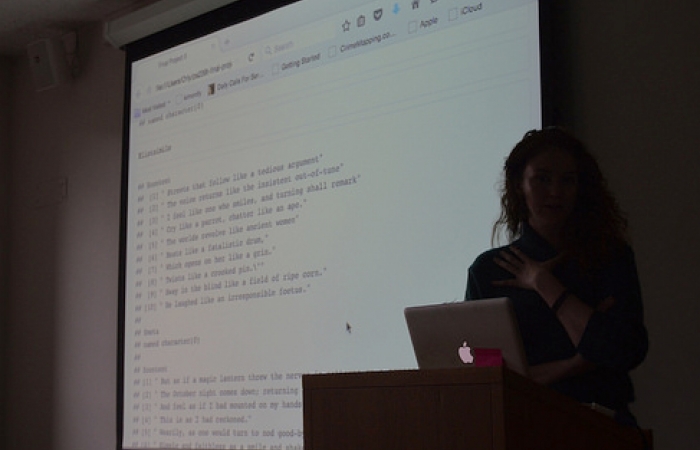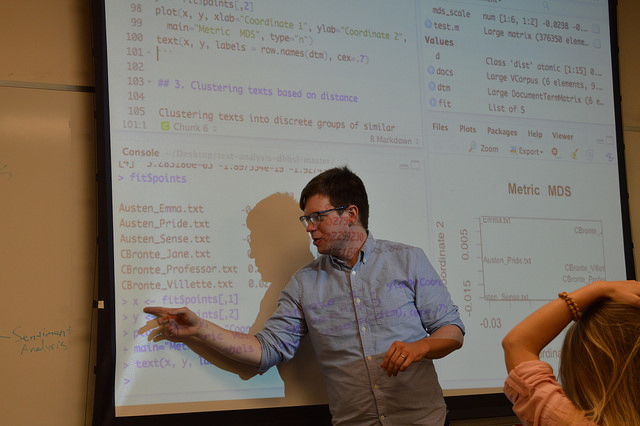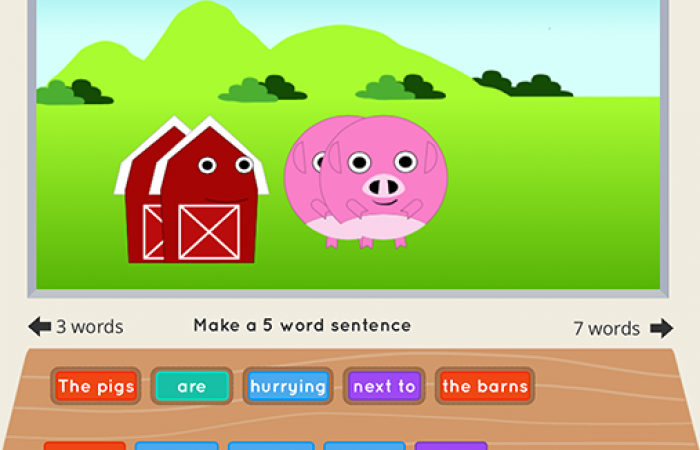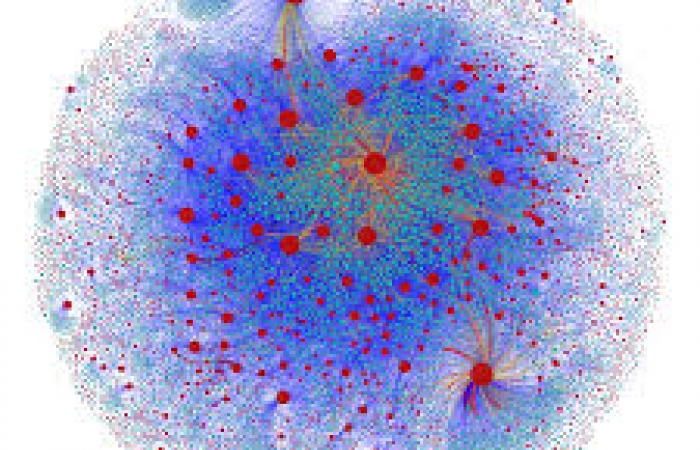DH Fellows Rochelle Terman and Laura Stoker Develop New Computational Tools and Techniques Course
In Fall 2015, DH Fellows Rochelle Terman, PhD Candidate in Political Science, and Laura Stoker, Associate Professor in Political Science, introduced a new interdisciplinary course, “Political Science 239T: Introduction to Computational Tools and Techniques for Social Research,” with support from a Digital Humanities at Berkeley new course component grant.

 Teddy Roland has joined the Digital Humanities at Berkeley staff as a consultant. He is a 20th century Americanist, studying poetry and poetics. He holds a master’s degree from the University of Chicago, where he worked on circuits of capital in Modernism as they relate to the rise of free verse.
Teddy Roland has joined the Digital Humanities at Berkeley staff as a consultant. He is a 20th century Americanist, studying poetry and poetics. He holds a master’s degree from the University of Chicago, where he worked on circuits of capital in Modernism as they relate to the rise of free verse.


